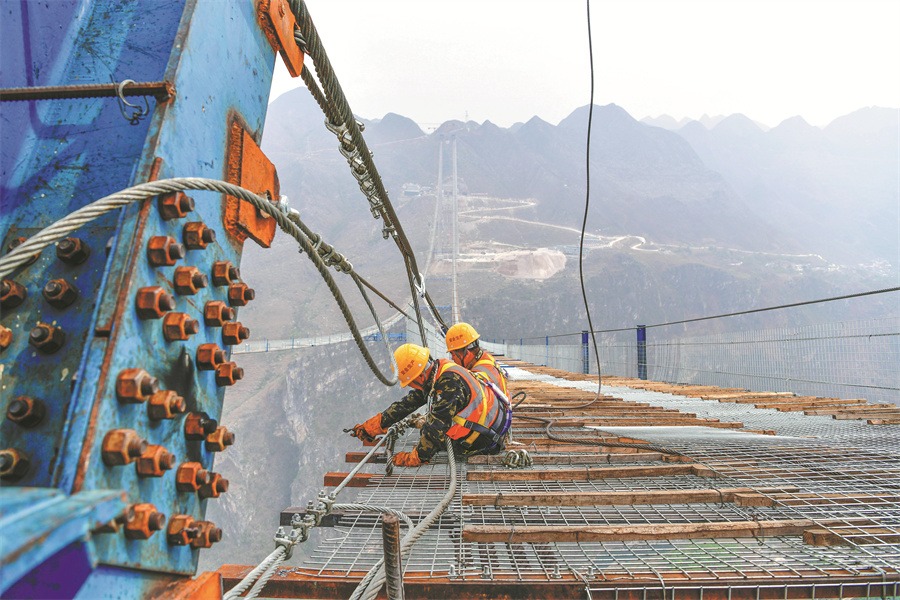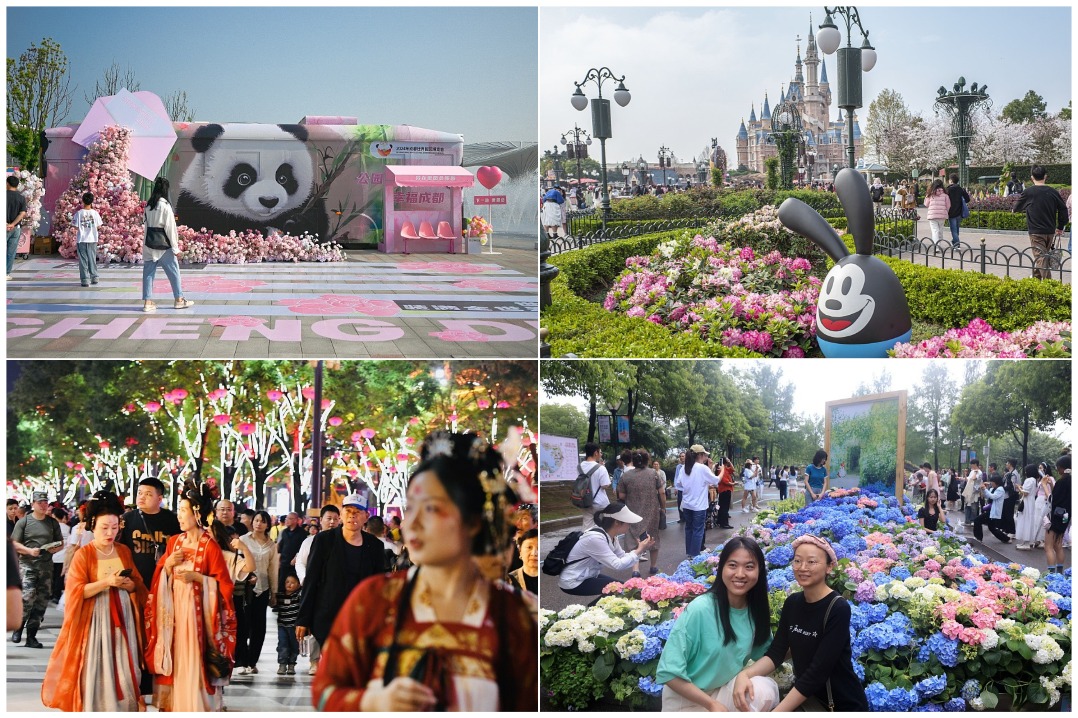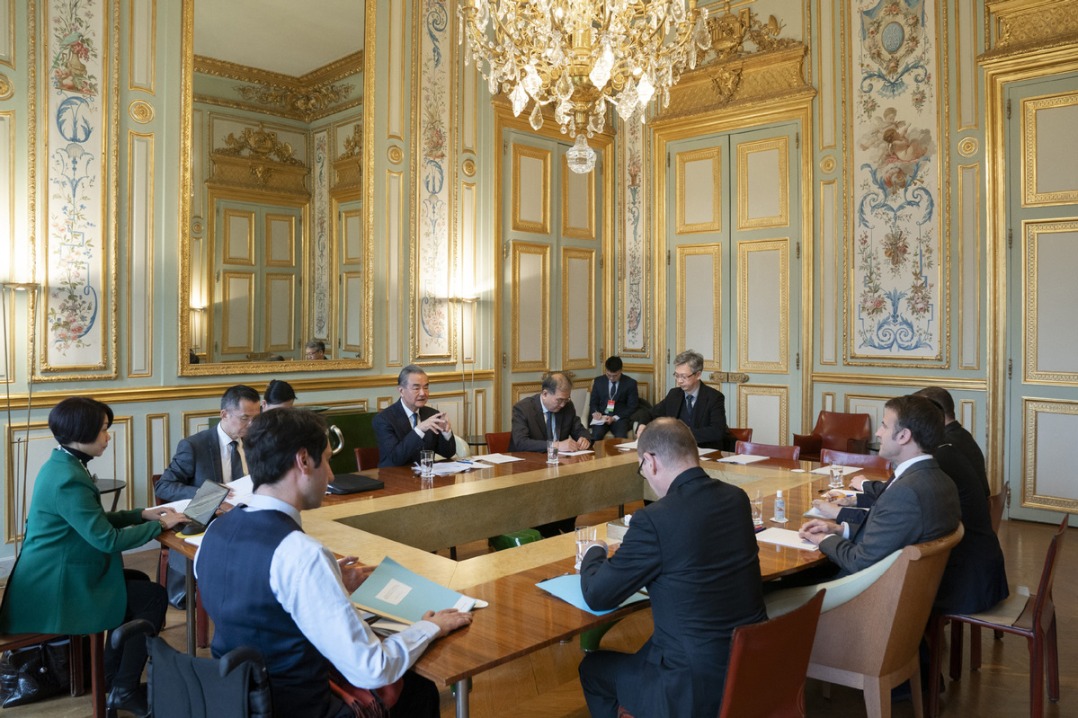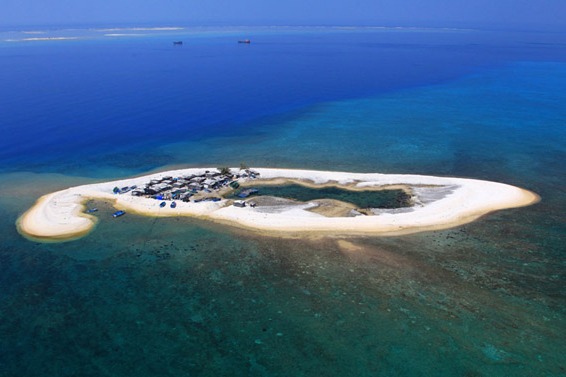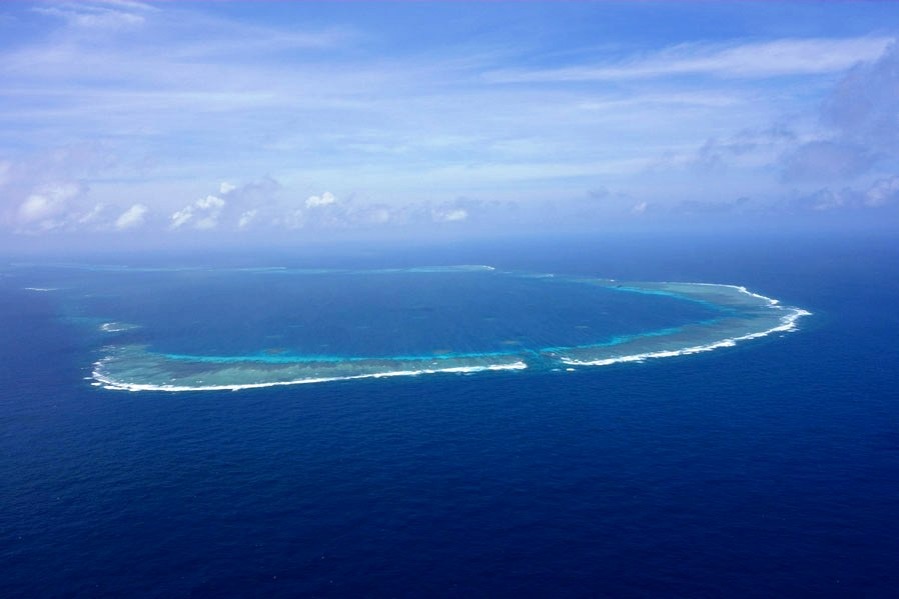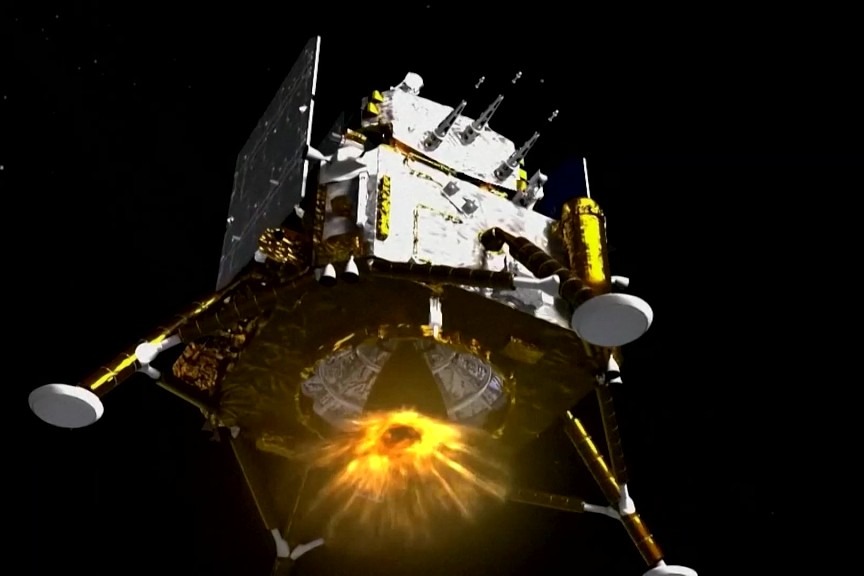In fair shape
Real multilateralism is the keystone support for the future global order

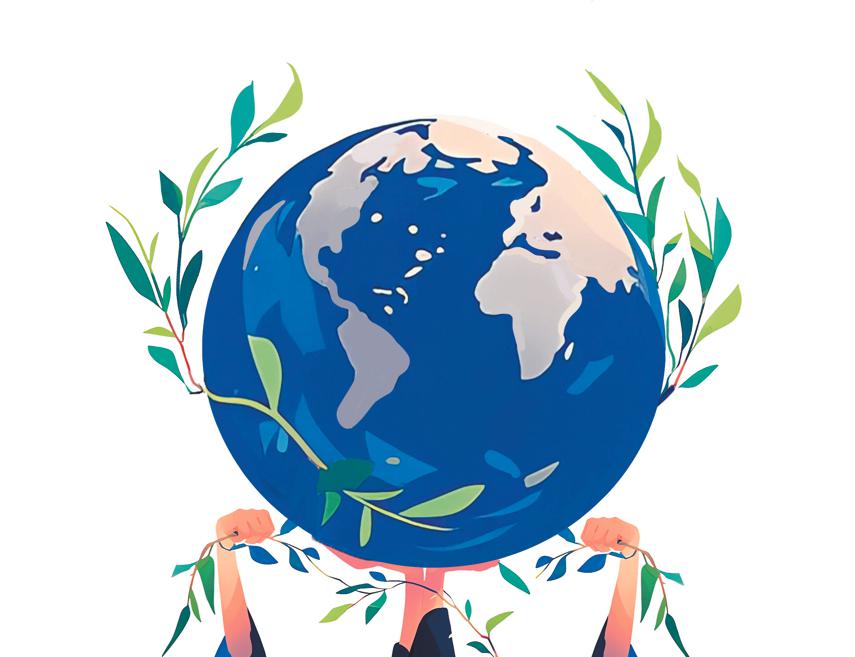
Today, most observers of international affairs agree that the world is moving toward a multipolar structure. After the end of the Cold War, there was a clear unipolar moment, and some in the West who believed that heralded "the end of history" dreamed of a Pax Americana era that would ensure peace and prosperity with unprecedented wealth and power. Unipolarity brought a period of hyper-globalization that generally lifted global growth and contributed to a rising Global South. The problem, nonetheless, was the hegemon drowned in its own hubris and lost the ability to act with self-restraint. It's a common problem with those who wield too much power: they believe their way is the only way. Hence, the "Great Delusion" led to a series of reckless wars and domestic divisions that ultimately weakened the very foundation of the rules-based international order. The reason is very simple: if the rules don't apply to the principal player, then who would willingly want to come and play?
It is likely that the world today is experiencing an "interregnum", argues Glenn Diesen in his book The Ukraine War & the Eurasian World Order, noting that "500 years of Western hegemony has ended, while the global majority's aspiration for a world order based on multipolarity and sovereign equality is rising". And yet, a multipolar Westphalian world order has not taken shape even though the liberal hegemony is fatally flawed. Just like the supremacy of the US dollar, which is all known to serve the interests of the United States and is a tool of exploitation and illegal punishment. But it seems there's no viable alternative to replace the dollar that could play a better role as standard, medium and reserve. The problem is actually threefold: the powerholder's refusal to give up its vested interests, the stakeholders' fear of chaos and concerns about the feasibility of an unproven new system, and the lack of consensus on the principle of fair share in the reconfiguration of the international order. In all, the world is truly stuck in a place where it is inevitably moving toward multipolarity, but no one is sure what kind of future lies ahead because their visions and interests are so diverse, even mutually oppositional.
Anxiety significantly increased with the multipolar trend, just as unbalanced globalization created economic winners and losers and a polarized political landscape inside most participating countries. The weaponization of finance and trade as well as the borderization of physical and cyber spaces make many scholars believe that the future multipolar world will be an unpredictable, unstable and dangerous war zone, where great power politics and its signature "rule of the jungle" will return. States will be forced to join security alliances for protection, economic blocs for supply chain safety and like-minded groupings for political and institutional stability. The fragmentation of the international system will unravel global governance that took many decades to develop, and destroy the ability to meet the common challenges that human society now faces. More importantly, if the multipolar world slips into uncontrollable and unmanageable "fierce competition", a dark future of artificial intelligence led nuclear Armageddon will no longer be a far-fetched sci-fi scenario we see in the movies.
But enough of the gloom and doom. There is no shortage of bad news in everyday headlines. Given the exhaustion of the existing order, what new order should the world strive for? Chinese Foreign Minister Wang Yi laid out China's principled position at a news conference on March 7 during this year's two sessions — the annual gathering of China's top legislative and political consultative bodies. He called for "an equal and orderly multipolar world and a universally beneficial and inclusive economic globalization". Wang elaborated that equal means "equal rights, opportunities and rules for every nation" and orderly means "all should observe the purposes and principles of the United Nations Charter, and uphold the universally recognized basic norms governing international relations".China, and for that matter the whole of the Global South, wants an improved UN-centered international system and is opposed to any attempt to weaken or circumvent it.
The foundation of this Chinese proposition is that the UN represents the real multilateralism that ties multiple powers together in a set of rules agreed and respected by all. UN multilateralism is based on the hard-won victory against fascism and the painful experiences of the two world wars, but it has been constantly violated and broken by bipolar, unipolar power struggles or monopolies. Yet never before has real multilateralism been so urgent and so promising. What the world needs now is not a divisive framework of Western democracy versus autocracy, but working multilateralism to govern and solve present and potential multipolar frictions and problems. In this respect, the international community requires like-minded countries to stand together and invest in multilateral mechanisms and institutions under the UN umbrella. China stands at the forefront of this new path toward a new multipolar world order, promoting its global security, development and civilization initiatives and acting as a mediator for peace. The more countries join the effort, the quicker the world can emerge from the present "interregnum".
The author is director of International Political Studies at the National Institute for Global Strategy. The author contributed this article to China Watch, a think tank powered by China Daily. The views do not necessarily reflect those of China Daily.
Contact the editor at editor@chinawatch.cn.



















